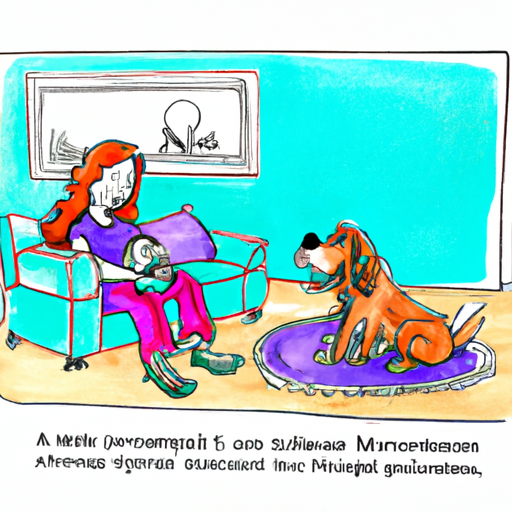Understanding Separation Anxiety
Separation anxiety in dogs can be a challenging issue to tackle. It’s crucial that you, as a caregiver, understand that these behaviors are not your pet’s way of “getting back at you” for leaving them alone. They are, in fact, signs of a genuine distress faced by your furry companion.
Let’s look at some common symptoms:
- Excessive barking or howling
- Destructive chewing or digging
- Urinating or defecating indoors
- Pacing in an obsessive pattern
These symptoms often occur within a short period (about 20-45 minutes) after the dog’s favorite person leaves.
Identifying The Causes
Before you start addressing the issue, it’s important to identify the root causes. The table below provides some common triggers for separation anxiety in dogs:
| Triggers | Description |
|---|---|
| Change in Routine | Dogs are creatures of habit and any sudden change in routine can cause anxiety. |
| Change in Family | The addition or loss of a family member can trigger separation anxiety. |
| Change in Living Conditions | Moving to a new place can be stressful for dogs. |
| Neglect or Abandonment | Dogs that have been neglected or abandoned in the past are more likely to develop separation anxiety. |
Implementing a Training Plan
Training is key when it comes to managing separation anxiety. Here are some effective strategies you can use:
- Gradual Desensitization: Start by leaving your dog alone for short periods, gradually increasing the duration over time.
- Counter-Conditioning: Associate your departure with something positive, like a treat or a favorite toy.
- Independence Training: Encourage your dog to spend time alone, even when you’re home.
Remember to be patient and consistent with your training. It might take some time, but it’s worth the effort.
Exploring Medical Options
In severe cases, medication might be needed. Always consult with a vet before starting any medication regime. They might prescribe anti-anxiety drugs or recommend natural remedies, like pheromone diffusers, calming collars, or anxiety wraps.
Seeking Professional Help
If your dog’s anxiety persists despite your best efforts, don’t hesitate to seek professional help. A certified dog behaviorist can provide additional guidance and suggest more specialized training techniques.
FAQ
Q: How long does it take to treat separation anxiety in dogs?
A: There’s no fixed timeline. It depends on the severity of the anxiety and the dog’s response to the treatment.
Q: Can puppies have separation anxiety?
A: Yes, puppies can also experience separation anxiety, especially if they’ve been abruptly weaned from their mothers.
Q: Can I leave my dog alone if they have separation anxiety?
A: It’s best not to leave your dog alone for long periods if they’re suffering from separation anxiety. If you must leave, consider using a pet-sitter or doggy daycare.
Remember, your pet needs your love and patience to overcome separation anxiety. Keep offering them both and watch the bond between you grow even stronger.



